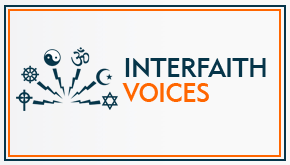This week on Interfaith Voices:
Church of Norway, state government officially split, as belief in God dwindles
For 480 years, the Church of Norway was the official state church of Norway, and Evangelical Lutheranism, the official state religion. But on January 1st, 2017, the church and state completed a legal split. Though enrollment in the Church is still at about 70% of Norwegians, this follows years of dwindling attendance and surveys showing a declining belief in God. We learn that Norway is following a pattern that many developed countries do: as safety, wealth, and happiness increase, faith in the divine dips. But many Norwegians are turning to a new form of belonging and ritual outside of a religious context: humanism.
Helge Årsheim, postdoctoral fellow in The Faculty of Theology at the University of Oslo
Phil Zuckerman, professor of sociology and secular studies at Pitzer College, and author of Living the Secular Life
Our God and Government series is produced with support from the Henry R. Luce Foundation.
Young Norwegians increasingly choose a humanist coming-of-age ceremony
Confirmation is a Lutheran tradition much beloved by Norwegians. It marks a child’s passage into adulthood and is accompanied by much celebration. But as more young Norwegians say they don’t believe in God, many are deciding to undergo humanist confirmations, which focus on community and ethics, rather than religion. And after the 2011 terrorist attack on Utoya Island, which killed 77 young people, humanists have turned the site of the massacre into a monument for tolerance. But even while many Norwegians find a lot to offer in humanism, is something being lost in the diminishing relevance of the Church of Norway?
Produced by Oliver Baerensen and Peter Bye Andersen
Norwegian Lutheranism’s legacy on the American frontier
In the 19th century, many Norwegians immigrated to the United States, attracted to cheap land and the promise of the frontier. Most settled in the Midwest, and in many places today, the influence of these settlers can still be seen and felt. Marvin Slind, professor emeritus of history at Luther College, tells us how those Norwegian immigrants impacted the religious landscape in America.
Marvin Slind, professor emeritus of history at Luther College
(Special thanks to Becky Idstrom and Charlie Langton at the Vesterheim Norwegian-American Museum for their help with this segment.)
A forgotten musical tradition of Norway is brought down from the attic, finds new life
When Norwegian immigrants came to the United States, they didn’t just bring their faith. They also brought their music. Beatrice Hole shows us a little-known instrument, the psalmodikon, which was invented to accompany the melancholy and warm Lutheran hymns of the day. Though it was once forgotten, she’s preserving the art for generations to come.
Beatrice Hole, founder of the Nordic-American Psalmodikonforbundet and the Nordic-American Psalmodikon Quartet



